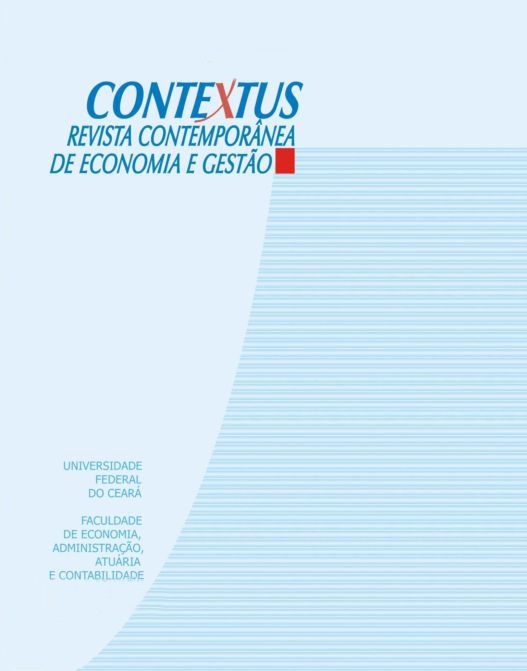Mercado Futuro: limitações e vantagens para o empresário rural
DOI:
https://doi.org/10.19094/contextus.v2i1.22Keywords:
Mercado Futuro, Empresário Rural, Vantagens, Limitações, Oportunidades.Abstract
Nas diversas cadeias que compõem o agribusiness, destacam-se, em importância econômica, as relações entre o empresário rural e a agroindústria e os agentes que afetam e coordenam os fluxos dos produtos, entre os quais estão as bolsas de futuros. O mercado futuro é um instrumento eficiente e moderno de comercialização agrícola utilizado em larga escala nas economias desenvolvidas. Este estudo tem como objetivo analisar as dificuldades e benefícios de investidores, principalmente o empréstimo rural, para negociar no mercado futuro agrícola. Uma de suas vantagens é permitir ao empresário rural planejar sua atividade fazendo orçamentos com controle dos custos. As vantagens que o mercado futuro oferece para quem opera vão muito além da simples proteção do preço. Negociando nos prazos estipulados, o investidor no mercado futuro pode sair a qualquer momento de sua posição, antes do vencimento do contrato, recomprando suas posições e dias depois voltando a vender. A principal limitação percebida com o mercado futuro agropecuário é a de ter que pagar os ajustes diários (variações de preços desfavoráveis exigidos pela BM&F e os custos operacionais que muitas vezes levam o hedger a desistir da operação).Downloads
Published
How to Cite
Issue
Section
License
The authors, while doing the submission, accept the notice below:
We authors hold the copyright related to our paper and transfer Contextus journal the right for the first publication with a Creative Commons’ international license of the modality Attribution – Non-commercial 4.0, which in turn allows the paper to be shared providing that both the authorship and the journal’s right for initial release are acknowledged.
Furthermore, we are aware of our permission to take part in additional contracts independently for non-exclusive distribution of the version of our work published in this journal (e.g. publishing it in an institutional repository or as a book chapter), while acknowledging both the authorship and the journal’s initial publication.
We also certify that the paper is original and up to this date has not been released in any other journal, Brazilian or of another nationality, either in Portuguese or another language, as well as it has not been sent for simultaneous publication in other journals.
Last, we not only know that plagiarism is not tolerated by Contextus but also certify the paper presents the sources of passages from cited works, including those authored by ourselves.









3.png)


1.jpg)



1.jpg)


1.jpg)






.jpg)



1.jpg)

1.jpg)


1.jpg)

1.jpg)
1.jpg)
2.png)




1.jpg)
2.jpg)

1.jpg)





1.jpg)


1.jpg)
1.jpg)
